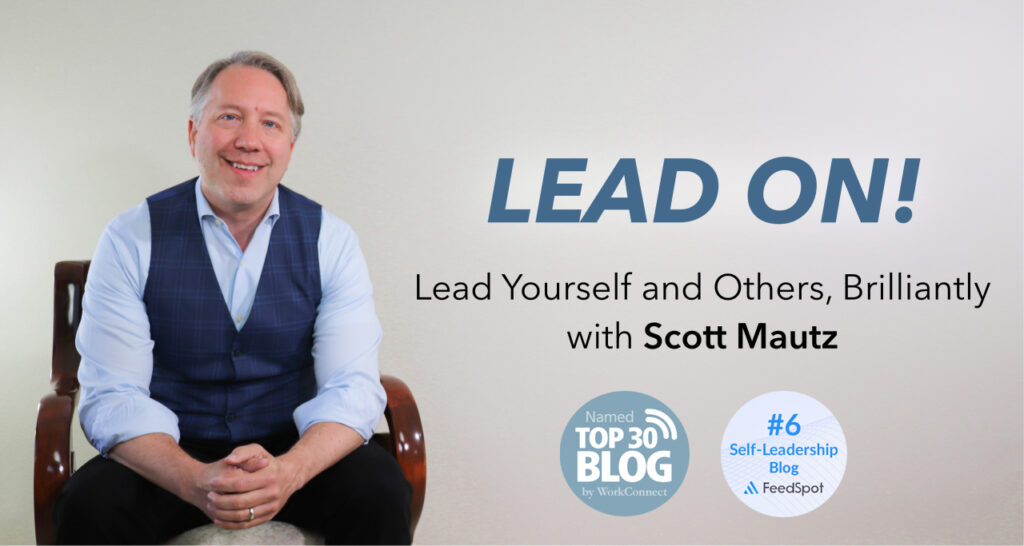
INSIGHTS (on leadership/self-leadership)
Developing confidence is hard enough. You don’t need myths about confidence undermining your ability to achieve it. Avoid these five in particular.
Myth #1: You’re born confident. Sure, confidence comes more naturally to some than others. But to think it’s a trait you’re either born with or not, is simply not true. Confidence is a habit you build, by managing your relationship with doubt.
Myth #2: Confidence comes from huge success. Of course, a big achievement makes you feel more confident. But research shows focusing on smaller goals is a far more efficient, reliable way to increase your confidence. As a study of top swimmers showed, the athletes that focused on small wins, progressing towards their goal in small increments, enhanced both their skills, and confidence in their abilities, which lead to more winning.
It’s not just for top athletes though. In one study, 91% of people who focused on smaller goals, said it increased, or greatly increased, their confidence. They cited the momentum, energy and conviction it gave them to achieve the next, bigger goal, while their confidence increased steadily along the way.
Myth #3: Confident people are confident all the time. It’s easy to assume this because the self-assuredness it takes to show up confident makes you think it must be ever present. But confidence isn’t automatic, for anyone. It takes habitual practice and the right mindset to maintain, and even the most highly confident people have lapses. In fact, one study among highly confident people showed that 93% said they still had serious bouts of self-doubt at times.
Myth# 4: Confident people are extroverts. It might seem that way, because, by definition, extroverts are more vocal and “in your face”, so you see more overt displays of confidence. But some of the most confident people I’ve ever known are just the opposite – they’re introverts. They just show their confidence in different ways. They’re confident enough to sit in silence, not feeling the need to demonstrate their value or knowledge by filling that silence with words. They show their confidence by asking smart questions when they do speak up, by being decisive, and by not beating their chest when they accomplish something.
Loud, frequent, external communications aren’t a prerequisite for confidence. Thoughtful, internal reflection, is.
Myth#5: Confident people have all the answers. No, just the opposite, really. They know for a fact they don’t have all the answers, and expect to make mistakes along the way. At the same time, they’re confident they’ll learn from those mistakes and have better “answers” in the future.
Some of the most confident people I’ve known even think of mistakes as a science experiment, and you can too – I’ll explain. View your miscues as part of trial and error, a science experiment you’re conducting, working to get the formula right. In this way, you’ll more easily accept mistakes and see failures as learning opportunities. When something goes wrong, you can detach from it (versus feeling like a victim), seeing the experience like a scientific observer, there to record it in your notebook, certain not to repeat it, curious about what you’ll discover in the next experiment.
IMPERFECTIONS (a mistake many make)
Any sea-faring navigator will tell you that you can be just a degree off on your compass, but by the time you reach what you think is your destination, you’re actually miles from where you wanted to be.
So it is with us. Tiny slips in our integrity can throw us off course over the long run, building on one another, causing us to drift further and further from who we intend to be. One of the best ways to help prevent this from happening (as I share in The Mentally Strong Leader), is to improve your invisible integrity. This means being certain that you’re always doing what’s right, even the small things, and especially when no one is looking. It also helps to have a high Say-Do Ratio. Meaning, the ratio of things you say you’ll do, to the things you actually follow through and do, is 1:1 (you do everything you say you’re going to).
Remember, one degree off adds up to miles and miles off, over time.

IMPLEMENTATION (one research-backed strategy, tip, or tool)
Want to live a braver, fuller life? Try repeating this mantra to yourself when needed.
Life shrinks or expands in proportion to your courage and perseverance.
I have personally found this to be absolutely true. I’ve had a few surgeries where things really went sideways (due to a neurological condition I have), creating some pretty hairy moments. I can first-hand attest that remembering this phrase helped me get through the darkest moments. Try it. It works.




Leave a Reply